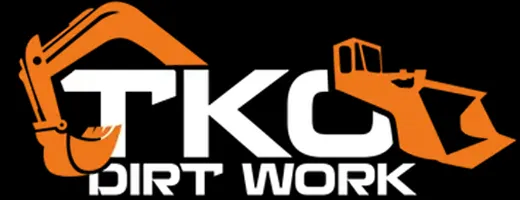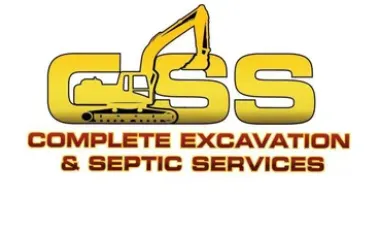
On the Blog

Excavation Services Near Knoxville, TN – What to Know Before Septic Digging
Excavation for Septic Systems: What You Need to Know Before You Dig in Loudon County, TN
1. Introduction: So You’re Installing a Septic System—Now What?
You're not the first homeowner to look at your backyard and feel a little overwhelmed. You're probably thinking: "Do I really need to tear up my yard for this?" or "What if I mess something up?" Or maybe you’re just trying to figure out what comes first—permits, digging, or picking the right tank.
We get it. At TKO Dirt Work, we’ve worked with families and property owners all across Loudon County and surrounding counties like Blount, Anderson, Roane, Monroe, Farragut, and Knox. Most folks don’t know where to begin when it comes to septic system excavation, and that’s totally normal.
What’s not normal? Feeling like you have to figure it all out alone—or worse, making a mistake that costs thousands to fix.
That’s why we put this guide together. We’re not here to brag. We’re here to help you understand what’s involved before a shovel hits the dirt—so you can make smart, informed decisions for your home and land.
2. Why Septic System Excavation Isn’t Just Digging a Hole
It might look like a big hole in the ground, but septic excavation is way more than that.
The hole has to be in the right spot, the right depth, and shaped in a way that won’t cause future drainage issues. Get it wrong, and you’re not just dealing with an inconvenient puddle—you’re dealing with sewage backup, health hazards, and potentially serious environmental fines.
This isn’t like planting a tree or setting posts for a fence. The whole system relies on the excavation being exact. That means considering your soil type, slope, water table, and local regulations—before you even rent a backhoe.
3. Understanding Soil, Slope, and Site Planning
Here in East Tennessee, the ground can change quickly. One minute you’ve got soft clay, the next you're digging through rocky red soil or thick limestone.
That matters because the kind of soil you have will affect how your septic system filters and breaks down waste. Too much clay and water won’t drain. Too sandy and it may drain too fast, before the waste is properly treated.
And then there’s slope. If your property is hilly (like many around Loudon, Blount, or Roane County), gravity might work against you—or help you, if you plan it right. Good site planning considers all these factors before a single trench is dug.
4. Local Permits and Codes: What You Need to Know
Let’s be honest—permits aren’t fun. But skipping them? That’s even worse.
In Tennessee, septic systems are regulated by the Department of Environment and Conservation (TDEC). They’ll need to approve your plans, inspect your soil, and sign off on the design before installation begins.
We’ve seen homeowners dig first and deal with permits later... and it never ends well. Often, they have to fill everything back in and start over. That’s time, money, and stress you don’t need.
Every county—Loudon, Knox, Monroe, you name it—has slightly different requirements too. A local excavation pro will know how to navigate them and make sure your paperwork’s squared away.
5. DIY or Hire a Pro? Excavation Services Near Knoxville, TN
Let’s talk real for a second. We know folks around here are handy. You may own land, a tractor, even a skid steer. And that’s great—but septic excavation isn’t always a DIY-friendly job.
Here’s why:
You can’t see everything underground. There may be power lines, gas lines, or old plumbing.
Septic regulations are strict. Even a few inches off on pipe slope can cause major problems later.
You might need special equipment. Not just for digging, but for trenching, grading, compacting, and safely handling waste tanks.
Hiring a pro who offers excavation services near Knoxville, TN means you’re working with someone who already knows the terrain, the codes, and what’s at stake. It's not about losing control—it's about gaining peace of mind.
6. Common Mistakes Homeowners Make During Septic Excavation
We’re not trying to scare you—but we are trying to save you from avoidable mistakes. Here are some big ones we’ve seen:
Digging without marking utilities (yes, that includes hitting your own power line)
Excavating too close to the house, driveway, or trees
Using the wrong backfill material, which can crush pipes or lead to pooling
Improper grading, which causes sewage to back up or leak
Even if you’re just helping out while a pro handles the install, knowing what not to do is key.
7. Equipment and Tools Needed for a Septic Dig
Thinking of renting equipment? Here's what you might need:
Excavator or backhoe
Trenching machine
Laser level or transit (for accurate slope)
Compactor for backfill
Soil testing tools
Safety gear
Rental costs add up fast. And if you’re unfamiliar with the machines, there’s a steep learning curve. It’s not just about “can I operate it?”—it’s also about “can I do it safely and accurately without damaging my property?”
A pro already owns this gear, uses it daily, and knows how to get in and out without turning your yard into a war zone.
8. What Happens If You Get It Wrong?
Bad excavation doesn’t just cost money—it can cause major health and environmental problems.
A poorly installed system might:
Leak sewage into your yard or nearby waterways
Back up into your home during heavy rain
Void your home’s resale value due to code violations
Require total system replacement, which can cost $10,000–$30,000+
None of that is worth the risk, especially when there are pros out there who can do it right the first time.
9. Working with the Right Excavation Team
If you’re looking for help, here’s what to ask before hiring someone:
Are they licensed and insured for septic work?
Do they have experience in your county?
Can they show examples or reviews of past work?
Do they walk you through the planning process, or just show up and dig?
At TKO Dirt Work, we believe in being transparent, friendly, and flexible. We know every property is different, so we customize our work based on your land, your goals, and your budget. No cookie-cutter installs here.
10. Why TKO Dirt Work Takes a Custom Approach
We’re not the biggest name in the area—but we’re proud of that. Based right here in Loudon County, we serve Anderson, Blount, Knox, Roane, Monroe, Farragut, and beyond.
What makes us different?
We listen first, so we actually understand what you need.
We know East Tennessee’s land like the back of our hand.
We keep things simple, clear, and low-pressure.
And we care more about getting it right than rushing through jobs.
Our goal? To make septic excavation less intimidating—and maybe even a little bit interesting.
Final Thoughts
Excavating for a septic system isn’t just a hole in the ground—it’s a long-term investment in your property’s health and value. Whether you’re installing a new tank, replacing an old one, or just curious what it takes to do it right, we hope this guide helped you feel a little more informed (and a little less overwhelmed).
If you're considering excavation services near Knoxville, TN, give us a call at TKO Dirt Work. We’ll talk you through your options, walk your property, and give honest advice—no pressure, no pushy sales talk.
Hours: Mon-Sat 09:00 am - 05:00 pm
Extended hours by appointment only.
Address: Lenoir City, TN, USA
All rights reserved | Client Support Area

Hours:
Mon - Fri 9:00 am - 5:00 pm
Extended hours by appointment only.



Facebook